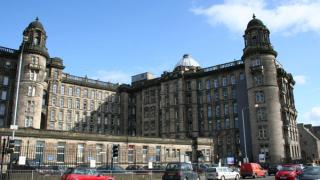
Low and zero carbon study for NHS Greater Glasgow & Clyde
- Client Name
- NHS Greater Glasgow & Clyde
- Location
- Glasgow, UK

Challenge
NHS Greater Glasgow and Clyde is the largest health board in Scotland with an energy bill and carbon foot printing commensurate with their estate.
They identified a need for site based energy strategies for each of their six acute hospital locations. The emphasis of this project was to provide strategies that focused on the energy supply side options. Each strategy covered potential options such as renewables, combined heat and power and district heating with a view to then developing shortlisted technologies in more detail through subsequent feasibility studies.
Further advice was provided on carbon saving potential of electric vehicles across NHSGGC fleet.
Solution
We worked with the board's energy management team to identify and evaluate low and zero carbon energy options across the six acute hospitals sites including the Queen Elizabeth University Hospital campus and Glasgow Royal Infirmary.
The feasibility assessments considered the potential for a number of technologies including:
- Gas fired CHP – turbine/engine
- Wind turbine generation Solar PV
- Solar thermal
- Fuel cells
- Energy from Wood – Gasifier or Anaerobic Digestion
- Energy storage
- Biomass boiler
- Biomass CHP; gasifier or turbine
- Heat pumps; central or decentralised, water/air/ground
- Geothermal
- Initial commentary on district heating
The findings of the evaluations were presented in a review report for each site which considered each technology in the context of criteria including benefits, barriers, incentives available, technology maturity & risk, supply chain maturity, high level costs and typical ROI.